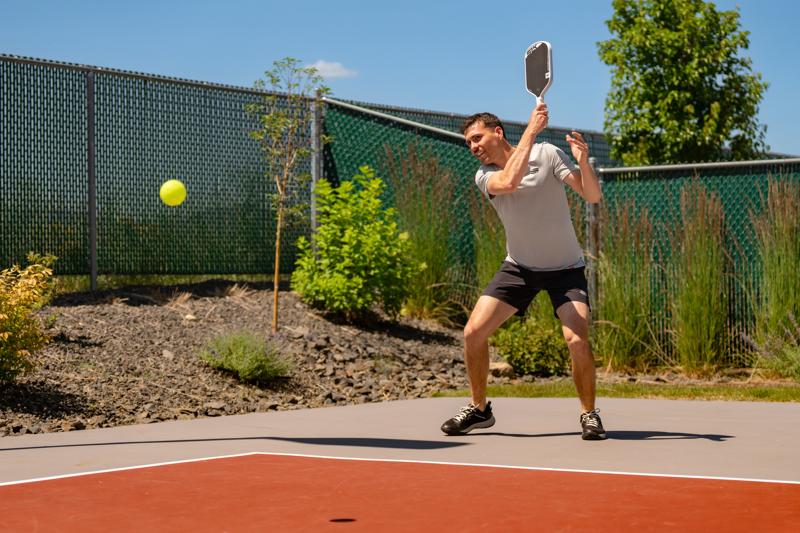Often confused for the same thing, the pickleball two-bounce rule and pickleball double bounce rule are actually very different rules. So what are the specifics of each rule and how are they different?
Pickleball 2-bounce rule
The pickleball 2-bounce rule says that the ball must bounce once on each side of the court before the player hits the ball, during each rally.
The official USA Pickleball rule:
7.A. A fault (and resulting dead ball) will be declared: If the serve or service return does not bounce before the ball is struck.
What this means is that:
- When the ball is served to the opposite side of the court, the receiver must allow the ball to bounce once before hitting it.
- When the receiver hits the ball back to the serving team, the receiver on the serving team must then also allow the ball to bounce once before hitting it.
2025 USA Pickleball rules - Section 7: Fault rules
Pickleball double bounce rule
A pickleball double bounce happens when a ball bounces on one side of the court two times before it’s hit. By rule, a player must hit the ball before it bounces (a volley), or after it has bounced one time on their side of the court.
The official USA Pickleball rule(s):
The pickleball double bounce rule is mentioned twice in the USA Pickleball rules, once as a definition and once as a fault.
3.A.8. Double Bounce: When the ball bounces twice on one side before it is returned.
7.E. A fault (and resulting dead ball) will be declared [if there is a]: Failure of a standing player to return the ball before it bounces twice on the receiving player’s side of the net and failure of a player using a wheelchair to return a ball before it bounces three times.
2025 USA Pickleball rules - Section 3: Definitions
Pickleball 2-bounce vs. double bounce rule
Although the two-bounce and double bounce rules in pickleball have very little in common, many players tend to use the terms interchangeably when speaking of only one of them.
Just remember, the 2-bounce rule in pickleball is a fault if it does not happen and the double bounce rule is a fault if it does happen. Hopefully that should help you remember the difference between the two rules to stop future confusion.

